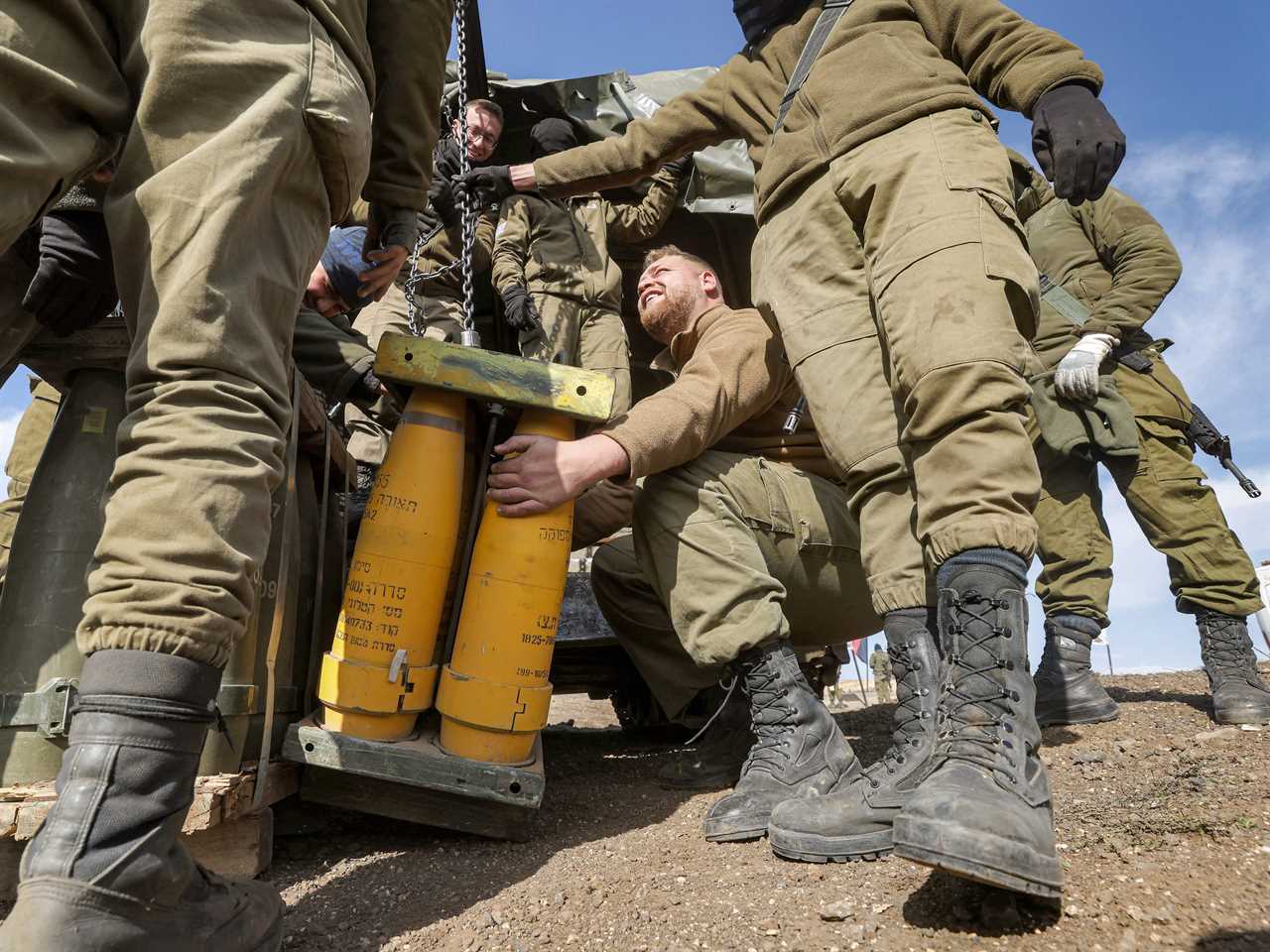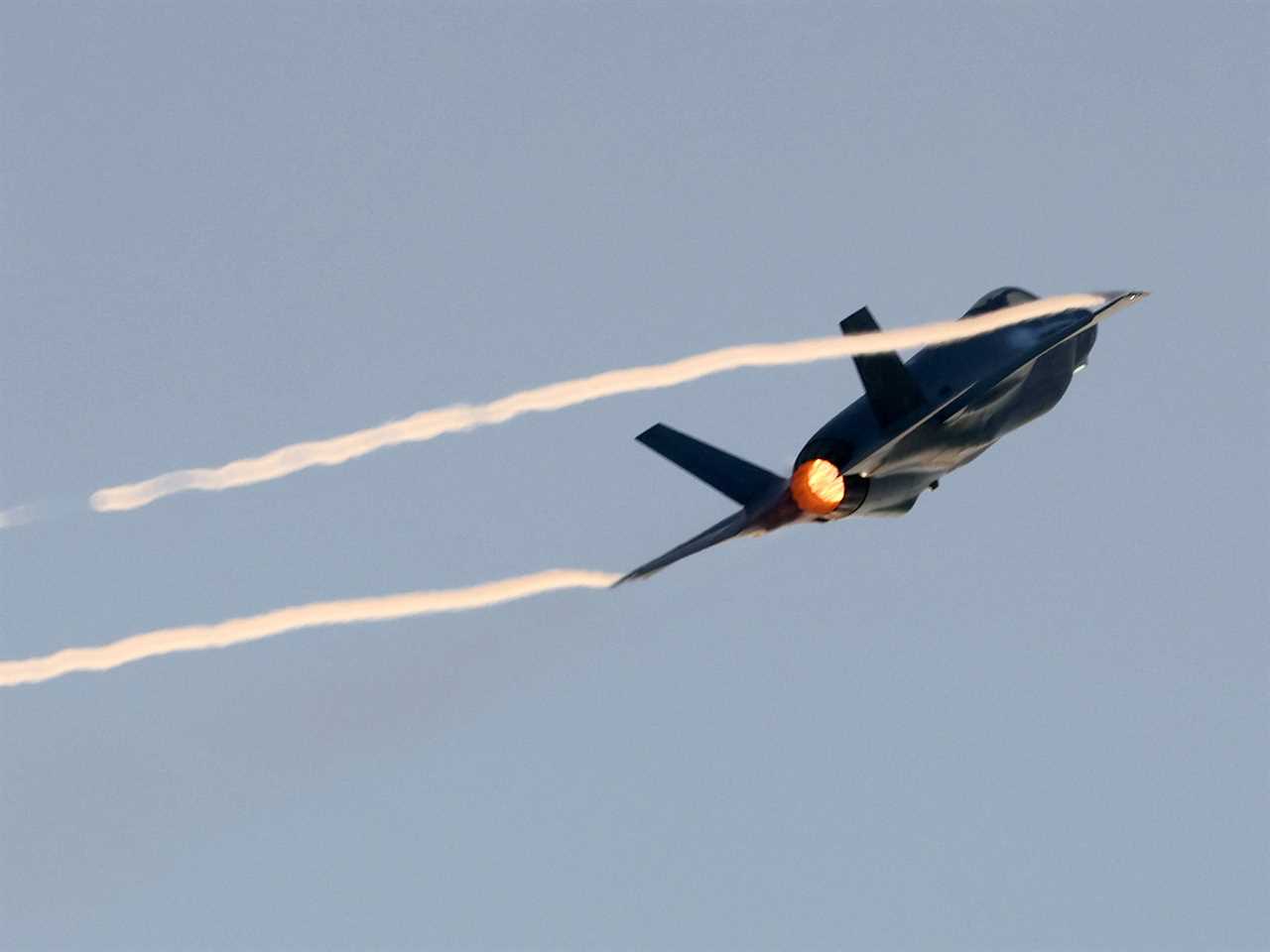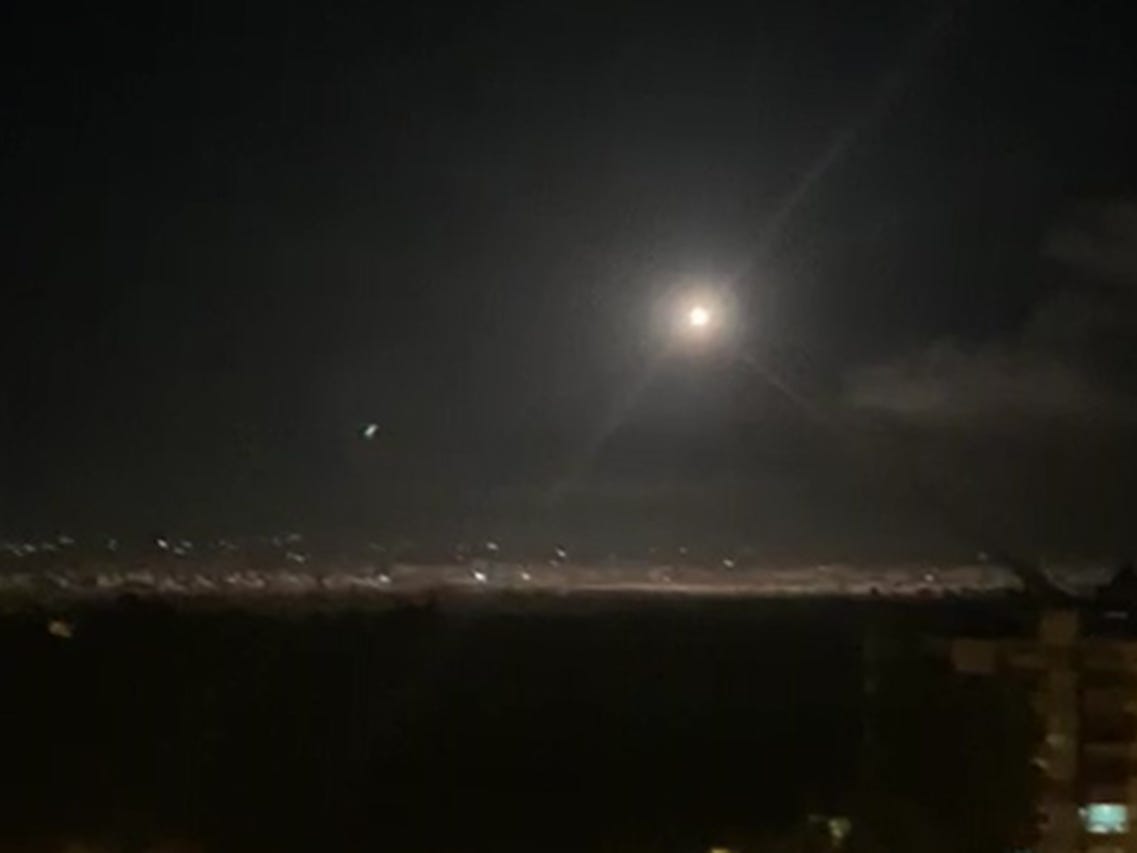JALAA MAREY/AFP via Getty Images
- Israel, a major US partner, has not provided direct military aid to Ukraine.
- The country is balancing Western interests and its own regional interests in the Middle East.
- Russia allows Israel to conduct operations targeting Iran-linked forces in Syria, something it doesn't want to jeopardize.
Since Russian forces launched a large-scale invasion of Ukraine nearly a year ago, the US and partner countries have provided Kyiv with tens of billions of dollars in widespread security assistance.
But Israel, a prominent ally of NATO and Western militaries, has so far refused to send weapons to Ukraine, despite pressure to do so, opting instead to focus its efforts on providing humanitarian aid.
Middle East experts say this is because Israel has a complicated relationship with Russia and works with the country to carry out operations in neighboring Syria. At the same time, Israel has been able to often strike a balance between the interests of major global powers and its own to avoid conflict.
Israel, as of February 2022, was the largest cumulative recipient of US foreign assistance — most of which comes in the form of military support. It also boasts one of the world's strongest militaries, armed with drones, advanced fighter jets, and even nuclear weapons, though that isn't openly acknowledged.
The US and its allies expected that Israel would support Ukraine when Russia invaded, but the country was slow to condemn Russian President Vladimir Putin and the unprovoked assault on Russia's neighbor.
From the early days of the war, Israel has provided humanitarian aid and equipment for emergency forces — efforts that have continued under the new right-wing government headed by Prime Minister Benjamin Netanyahu. But the country has stopped short of providing direct lethal military aid to Ukraine, despite pleas from leadership in Kyiv.
It's complicated.
Israel's complicated relationship with Russia has multiple dimensions to it. For starters, Israel is home to large Russian and Ukrainian communities, while both of these countries host Jewish populations.
"How do you deal with countries — that have Jewish communities — and they fight with one another?" Yossi Mekelberg, an associate fellow with the Middle East and North Africa program at the UK-based Chatham House, told Insider. "You have to be careful how you act without endangering one or the other Jewish community."

JALAA MAREY/AFP via Getty Images
But the issue that remains front and center when it comes to Israel's reluctance to send military aid to Ukraine involves neighboring Syria and a shadowy conflict between Israel and its regional foe, Iran.
Russia controls much of the airspace over war-torn Syria, and it allows Israel to carry out operations targeting Iran-linked assets and weapons shipments to its regional proxies like the Lebanon-based Hezbollah — which is designated as a foreign terrorist organization by the US State Department.
"Russia doesn't try to shoot down Israeli planes, and Israeli planes don't try to destroy Russian anti-aircraft batteries," Jon Alterman, director of the Middle East Program at the Center for Strategic and International Studies, told Insider.
Even as Moscow allows Israel to clamp down on Iranian influence in Syria, Russia and Iran have increased their military ties and support throughout the Ukraine war. Tehran has provided the Kremlin with suicide drones, which Russian forces have used to bombard Ukrainian cities and the country's civilian infrastructure.
A top UK official said in December that Russia was also seeking a massive supply of ballistic missiles from Iran and was prepared to offer the country "unprecedented" military support in return.
'Contradictory' and 'paradoxical' behaviors
In theory, the threat posed by Russia-Iran cooperation in this space would appear to be the most likely impetus for Israel to provide additional support for Ukraine, Alterman said, but Israel is reluctant to lose the freedom of action it has in Syria because it perceives Hezbollah to be a tremendous danger.
"It would take a lot for Israel to feel that it should jeopardize freedom of action against these resupply efforts that go through Syria," he said. So even with these increasing military ties between Moscow and Tehran, Israel has not made efforts to outfit Ukraine with lethal aid needed to defeat Russia.
International relations occasionally have "contradictory" and "paradoxical behavior," Mekelberg explained — a policy might not make much sense in the big picture but it works for a specific case, even if it contradicts a stance on another issue.

JACK GUEZ/AFP via Getty Images

AFP via Getty Images
Another example of this contradictory behavior is that Russia doesn't want Iran to have too much influence in Syria and is happy for Israel to carry out its operations in country. It could have stopped Israeli behavior a long time ago if it wanted to, Mekelberg added.
"Every country has a complicated set of interests, so Israel and Russia have a certain amount of understanding. But you could argue that Russia and Iran are cooperating in a range of ways, some of which Israel finds threatening because Israel finds Iran so threatening," Alterman said. "So it seems to me that what Israel is doing and what Israel expects countries to do is to balance between partners and between interests that nobody gets a hundred percent of anything."
Israel's response to the Ukraine war does not seem to be a major cause for concern in Washington, and it's not the only country with solid US ties — like South Korea and India — to sidestep directly sending lethal aid to Ukraine.
"It's partly a reflection of the complexity of the US-Israeli relationship," Alterman said, "and partly a reflection of the Biden administration having to adjust for the fact that close partners are, in many cases, unwilling to line up across the board."
Last week, Axios reported that the US asked Israel if it could transfer out-of-service Hawk anti-aircraft missiles, but it remains to be seen if Israel breaks with protocol and decides to transfer lethal military aid to Ukraine. Netanyahu told CNN recently that he would consider sending weaponry to Kyiv, which Moscow warned would lead to an escalation in the conflict, according to The Times of Israel.
Meanwhile, Western security assistance to Ukraine is continuing to pile up. Hundreds of armored vehicles, including tanks and infantry fighting vehicles, are heading to Ukraine in the coming months to help it defend itself against what US officials describe as a potential Russian "onslaught."
Read More
By: [email protected] (Jake Epstein)
Title: Here's why Israel, one of the toughest militaries, isn't arming Ukraine despite a global push to do so. It's got another fight in focus.
Sourced From: www.businessinsider.com/israel-ukraine-weapons-fighting-syria-russia-2023-2
Published Date: Thu, 02 Feb 2023 23:30:00 +0000
.png)





